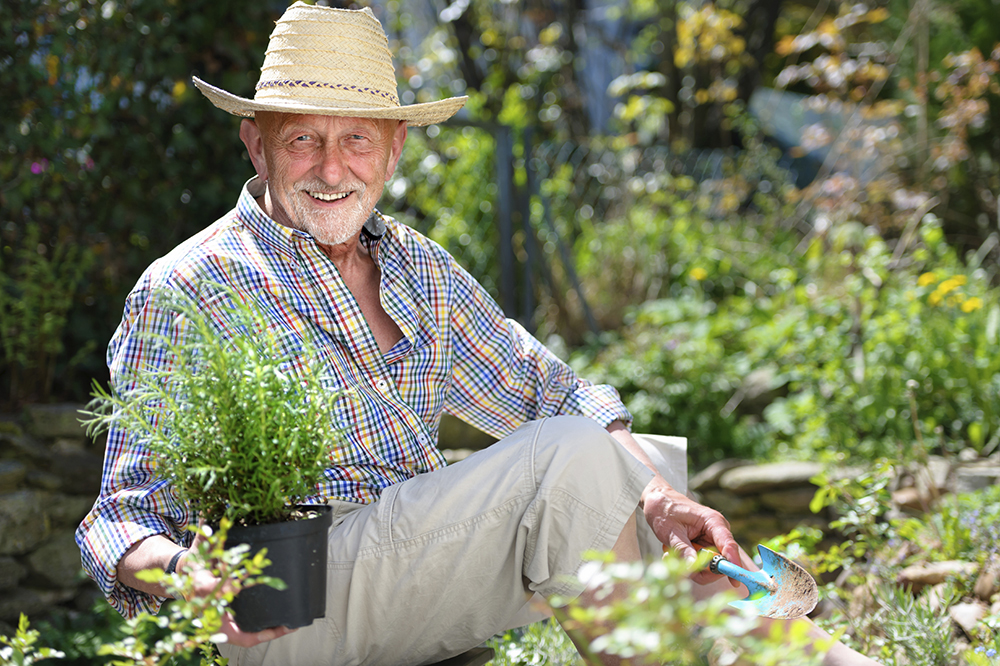
Reflecting on the Benefits of Older Americans
Often times in our culture, we devalue senior citizens as they age. Yet, older Americans still have wisdom to impart, good to do, and lessons to provide our younger generations. This May, we celebrate Older Americans Month to recognize the many contributions that older adults make to their communities, offering their time, experience, and talents to enrich the lives of people around them. This year’s theme is “Aging Unbound,” which encourages us to explore diverse aging experiences and determine how communities can combat existing stereotypes.
This month we celebrate the many older adults in our end-of-life care program in Alameda County and elsewhere. Let’s take this time to reflect on the benefits of embracing our older Americans as they continue to teach, enrich, and inspire.
Contributions of Seniors
From sharing knowledge gleaned over a lifetime to making charitable donations, there are many ways in which seniors contribute to society.
- Sharing knowledge: There’s no doubt that seniors bring a wealth of knowledge and experience, making them valuable teachers and mentors.
- Charitable donations: Seniors are very generous. In fact, seniors donated $471 billion to charities in 2020 alone. They contribute financially in many other ways as well, such as supporting their children and grandchildren with money or sharing their homes. Let’s not forget: the taxes alone that seniors have paid out over their lifetime are staggering.
- Child care: More than 2.7 million grandparents live with a grandchild and serve as the primary caregiver.
Staying Active in Our Communities
Just because a senior is retired doesn’t mean they can’t or don’t want to contribute to society. About one in five older adults volunteer, as they embrace these meaningful opportunities to stay active and engaged. One study says that the more people volunteer, the higher their life satisfaction is. Overall, volunteerism can improve health, relationships, and skill sets. Here are some of the benefits of volunteering for older adults.
- Boosts mental health: Volunteering has been shown to keep the brain active, contributing to better mental health. Meaningful and productive activities make people feel happier and embrace a more positive outlook on life. The National Institute on Aging also says that volunteering can lower the risk of dementia and other health issues.
- Prevents loneliness and isolation: Many older adults are sidelined by social isolation. There are many reasons why they are isolated, from not being able to drive any longer to losing increasing numbers of friends who have passed. Loneliness negatively impacts a person’s health, so it stands to reason that engaging in the community and volunteering will promote socialization and combat that pervasive feeling of loneliness. The Corporation for National and Community Service says that those who engage in volunteering activities have shorter bouts of depression than those who don’t.
- Feeling of purpose: Older Americans may feel like their sense of purpose has faded, as they no longer have a job to go off to, their children and grandchildren no longer need them, and they can’t engage in physical activities like they used to. It’s important to regain a feeling of purpose, and that motivation can be achieved through volunteering.
- Meet new friends: Seniors may find their circle of friends has dwindled or changed completely, especially if they have downsized and moved into assisted living. Volunteering opens up new possibilities for friendships as they meet new people who have common interests.
- Increases physical activity: Physical activity is of paramount importance if you want to stay healthy and independent in older age. Volunteering keeps people moving, whether you decide to clean up your local park or serve meals at a local homeless shelter.
- Bridges the generation gap: Volunteering gives seniors a new way to interact with younger generations that they may have fallen out of touch with over the years. It gives them an opportunity to share important life lessons to younger people, but on the flip side, seniors can learn new ways of doing things from their younger counterparts. These interactions build a connection with one another so that they can learn to appreciate different perspectives.
- Engage with old interests: If you ask many older Americans what they miss most, they may say their ability to engage in the hobbies and activities they once did. If you used to be a teacher, for example, perhaps you can volunteer at a youth center. If you used to enjoy knitting, perhaps you can host a knitting group for younger people. From art to cooking classes, seniors can use volunteerism as a way to revisit old skills.
- Learn new skills: At the same time, volunteering allows seniors to learn brand new skills that they may not have had an opportunity or interest to do before. Push yourself beyond your comfort zone and try new things!
Contact Pathways Home Health and Hospice
To learn about the many ways we celebrate and commemorate the older Americans in our end-of-life program, contact us today at 888-978-1306.

